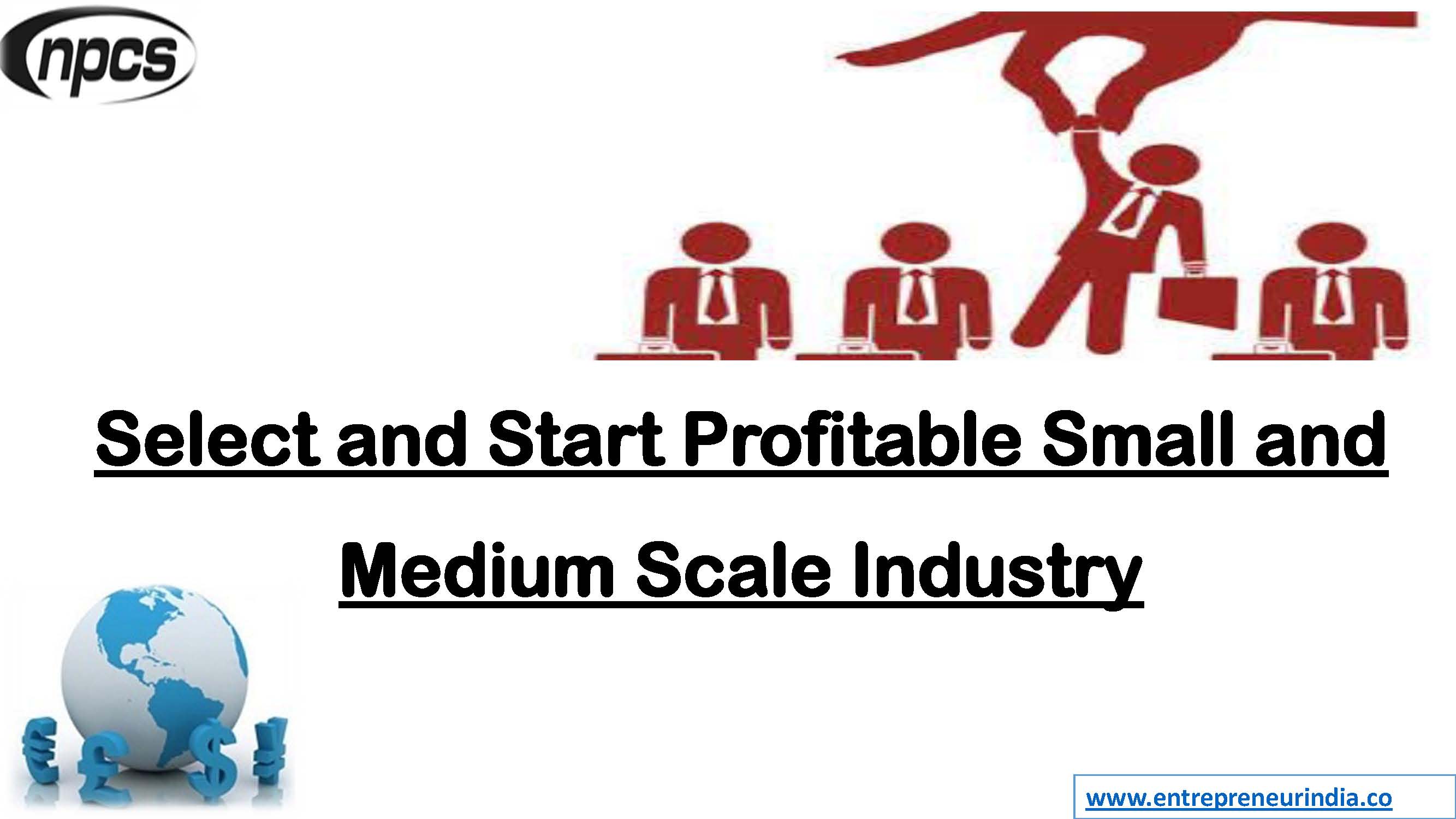
India’s economic backbone is built on its small and medium scale industries (SMEs). These industries not only generate employment but also offer high returns with relatively low investment. If you’re an aspiring entrepreneur or investor, understanding how to select and start a profitable small and medium scale industry can open doors to long-term success. With the right planning, government support, and market understanding, SMEs can grow into robust and scalable enterprises.
This guide will help you explore the best options, key factors to consider, and actionable steps to launch your own manufacturing or processing unit.
Why Choose a Small or Medium Scale Industry?
Before diving into the business ideas, let’s understand the advantages of starting an SME in India:
-
Low Entry Barrier: Affordable setup costs and basic infrastructure requirements
-
Government Support: MSME loans, tax exemptions, and subsidies
-
Scalability: Start with limited resources and expand gradually
-
High Demand: Many products cater to everyday needs
-
Local & Export Markets: Strong potential to grow both domestically and internationally
Whether you operate from rural, semi-urban, or urban India, SMEs can be tailored to suit your location, skill set, and budget.
See More – New Business Plans for Entrepreneurs
Top Profitable Small and Medium Scale Industries to Start
Here’s a curated list of profitable industries with consistent demand and high growth potential.
1. Spice Processing and Packaging Unit
India is the world’s spice capital. A small unit for grinding, mixing, and packaging can be started with low capital and scaled easily.
-
Investment: ?5–10 lakh
-
Scope: Local retailers, supermarkets, and exports
2. Detergent Powder and Liquid Soap Manufacturing
Every household needs cleaning products. This industry is recession-proof and growing with urbanization.
-
Profit Margin: 25%–40%
-
Sales Channels: Local shops, wholesalers, white-labeled supply
3. Bakery Products Unit
From bread and cookies to cakes and rusks, baked goods offer quick turnover and daily sales.
-
Location Advantage: Near schools, offices, and housing areas
-
Add-ons: Eggless, gluten-free, or health-focused items
4. Cold-Pressed Oil Manufacturing
The health-conscious population is shifting toward chemical-free oils. Cold-pressed oil units offer high returns with minimal processing.
5. Paper Cups, Plates, and Bag Manufacturing
With single-use plastic bans in force, the demand for eco-friendly disposables and paper bags is booming.
-
Raw Materials: Easily available
-
Government Incentives: Applicable under MSME
6. Packaged Snacks & Namkeen Unit
Indian snacks like sev, bhujia, and chips are evergreen. A small kitchen setup can turn into a commercial unit.
-
USP: Regional flavors and hygienic packaging
7. Mushroom Cultivation and Processing
Mushrooms grow quickly, require little space, and can be sold fresh or processed into packaged products.
-
Ideal For: Rural and semi-urban locations
8. Pickle and Chutney Processing Unit
Turn traditional family recipes into branded products. Pickles and chutneys have a long shelf life and high demand.
9. Milk-Based Product Unit (Paneer, Ghee, Flavored Milk)
India’s dairy market is massive. Processing raw milk into high-value products ensures higher profits.
-
Market: Restaurants, sweet shops, supermarkets
10. Jute and Cotton Bag Manufacturing
Reusable bags are gaining traction as consumers move away from plastic. This is an eco-conscious, scalable business.
How to Select the Right Industry for You
Here are essential factors to consider before finalizing your industry:
1. Market Demand
Research local and regional demand for the product. Visit nearby markets, talk to wholesalers, or analyze online trends.
2. Capital Investment
Evaluate how much you can invest initially. Some businesses require ?5–10 lakh, while others might need ?25+ lakh.
3. Raw Material Availability
Choose an industry where raw materials are readily available to cut logistics costs and delays.
4. Your Experience & Skills
Start a business aligned with your interests or skills. It helps with better quality control and decision-making.
5. Government Licensing & Compliance
Check the required registrations—FSSAI, GST, MSME Udyam, Pollution Control Board NOC, etc.
Steps to Start a Profitable Small and Medium Scale Industry
Once you’ve selected the right business, follow these structured steps:
1. Create a Business Plan
Include your product line, investment breakdown, sourcing plan, marketing channels, and expected ROI.
2. Register Your Business
Apply for Udyam Registration under MSME for tax benefits, subsidies, and loan eligibility.
3. Secure Capital
Explore funding through:
-
Bank loans under Mudra Scheme
-
State industrial development corporations
-
Angel investors or NBFCs
4. Set Up Infrastructure
Choose a location with access to transport, labor, and raw materials. Rent a small unit to begin and scale up later.
5. Purchase Machinery
Opt for semi-automatic or small-scale equipment based on your product and budget.
6. Hire Manpower
Skilled or semi-skilled labor based on your product (packaging, mixing, quality control, delivery, etc.)
7. Branding and Marketing
Develop a brand identity. Use digital marketing, local distributors, and platforms like Amazon, Flipkart, or IndiaMART to expand.
Government Schemes for Small and Medium Scale Industries
Here are a few support programs you should explore:
| Scheme | Benefit |
|---|---|
| MSME Udyam Registration | Tax relief, priority in tenders, subsidies |
| MUDRA Loan Scheme | Collateral-free loans up to ?10 lakh |
| Startup India Initiative | Tax exemptions, mentorship, fast-track IP registration |
| PMEGP (KVIC) | 15–35% subsidy for rural manufacturing units |
Starting a profitable small and medium scale industry in India is more achievable today than ever before. Whether you’re in food processing, eco-products, or health and wellness, there are numerous opportunities waiting to be tapped. The key lies in selecting the right industry, understanding your market, and executing a well-planned strategy.
With the right support, even a modest investment can grow into a successful manufacturing business that provides financial stability, employment, and growth potential.





